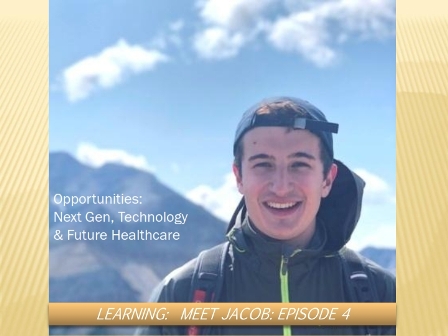
COVID 19 has had a direct impact on healthcare from both the perspectives of healthcare providers and patients. It has also changed health supply chains, diagnosis and treatment protocols, and has accelerated the development and adoption of new medical therapies and emerging digital technologies in the delivery of healthcare services. These changes have opened up a new way for clinicians to interact with their patients. And yes these changes present both challenges and opportunities.

In Episode 4 Jacob shares his perspectives on the power of the in person interaction between doctors and patients, patient groups, and technologies that enable remote diagnosis and delivery of treatments may be of benefit to patients if the value is additive.
The integration of new emerging technologies with current healthcare delivery may also benefit patients in remote locations or those unable to travel for treatment, enabling new incredible opportunities for future careers in healthcare and for the development of new therapies and technologies. The challenge however may lie in the integration of technologies as tools into the well with the future practice of medicine.
So if you are now thinking of a potential future occupation in healthcare, future opportunities for new occupations will arise – as hybrids of technology and future medical therapies and protocols, with a powerful touch of human capacity for empathy. Empathy and human compassion will be a quality not yet prescient in robots or AI – at least in the foreseeable future.
About Jacob Dunn

Jacob is currently entering his fourth year of a Bachelor’s degree in Neuroscience at the University of Alberta. He is engaged in laboratory research focused on chronic pain and Multiple Sclerosis through the Kerr & Plemel labs. Jacob’s healthcare experience as a child learning to live with chronic kidney disease has fueled his current volunteer work and future career goals. He is currently an active volunteer with several different Alberta Health Services’ councils in a variety of capacities, such as helping to establish the Mental Health and Addictions Youth Advisory Council and serving as patient co-chair of the Stollery Children’s Hospital Patient and Family Centred Care Council. Combining his personal experience and academic background, Jacob is planning to apply to medical school as he continues to work towards being a positive part of other patients’ clinical teams.




